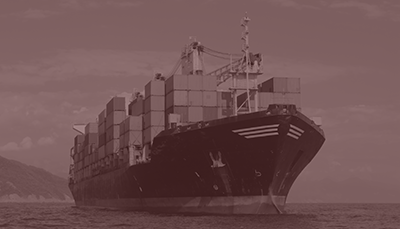France stands out for the significant role that imports play in the dynamics of its carbon footprint. Between 2000 and 2014, trade openness worsened France’s carbon footprint, in particular because of the rapid growth of Chinese imports until 2008. At the same time, technological progress in France but, especially, abroad led to a modest reduction in the carbon footprint. For a relatively low emitting country like France, changes occurring outside national borders play a key role in the evolution of the carbon footprint. This observation highlights the need to coordinate national efforts with international strategies to reduce emissions linked to the production of our trade partners. Pierre Cotterlaz, Christophe Gouel
>>> |
The globalization of the economy and the absence of a common tax framework allows multinational enterprises to artificially locate their profits in low-tax jurisdictions, which reduces public revenues and fuels international tensions. Over the past fifteen years, a multilateral dynamic had taken shape, raising hopes for a global-scale regulation of multinational corporate taxation. The recent return to unilateral policies jeopardizes the construction of this new equilibrium. Alessandro Ferrari, Sébastien Laffite, Mathieu Parenti, Farid Toubal
>>> |
- Dynamics of World Trade: A Question of Prices?
Pierre Cotterlaz, Guillaume Gaulier, Aude Sztulman, Deniz Ünal - France’s Exorbitant Privilege
Laurence Nayman, Vincent Vicard - Multinational Enterprises Have Favored Employment in Their Domestic Affiliates since the Covid-19 Shock
Camilo Umana Dajud, Vincent Vicard, Constance Marette
- Labor Market Power, Export Prices and Pass-through
Malik Curuk, Jérôme Héricourt, Gonzague Vannoorenberghe - Do Anti-immigration Attitudes Discourage Immigration? Evidence from a New Instrument
Etienne Bacher, Michel Beine, Hillel Rapoport - Deep Trade Agreements and Heterogeneous Firms’ Exports
Matteo Neri-Lainé, Gianluca Orefice, Michele Ruta - The Instruments of Profit Shifting
Kevin Parra Ramirez, Vincent Vicard - Sectoral Linkages and the Impact of Immigration on Export Performance
Amandine Aubry, Anthony Edo - Immigration, Identity Choices, and Cultural Diversity
Yasmine Elkhateeb, Riccardo Turati, Jérôme Valette
15th Annual International Conference on Immigration in OECD Countries
December 11 - 12, 2025
7th EMME Workshop Emerging Market MacroEconomics
March 20, 2026
Industrial Policy: Managing Trade-Offs for Growth and Resilience. Discussion of the chapter of the IMF World Economic Outlook 2025
Download the prseentations
Sovereign Default and IMF Stabilization: Lessons from Sri Lanka
Download the presentations
Dynamics of World Trade: A Question of Prices? Behind the expansion or slowdown of world trade in value terms lies a key factor: price movements, which are often sharply contrasted across categories of traded goods. Pierre Cotterlaz, Guillaume Gaulier, Aude Sztulman, Deniz Ünal >>> |
France’s Exorbitant Privilege.png) Despite its clear net debtor position, France receives more investment income than it pays out — a form of “exorbitant privilege” long associated with the United States. Laurence Nayman, Vincent Vicard >>> |
- Contact us
- Our other sites
 |
ISSN: 1255-7072
Editorial Director : Antoine BouëtManaging Editor : Evgenia Korotkova













